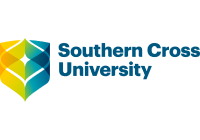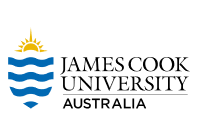Introduction to MBA Executive Programs
An MBA Executive course, also known as an Executive Master of Business Administration (EMBA), is a graduate-level business degree designed specifically for experienced professionals looking to enhance their management and leadership skills while maintaining their full-time careers.
The Difference Between a Regular MBA and an Executive MBA
While a traditional MBA program caters to individuals with varying levels of professional experience, an Executive MBA is tailored for professionals with significant work experience, usually at least 5-10 years. This makes the coursework more in-depth and relevant to real-world business challenges.
Quick Links To Online MBA Programs
RMIT Online
Master of Business Administration (MBA) Online
- 2.7 years part-time, Reduced duration available
- Jan, Mar, May, July, Aug, Oct
- $4,560 per course, FEE-HELP available
Southern Cross University
Master of Business Administration (MBA) Online
- 2 years part-time
- Jan, Mar, May, July, Aug, Oct
- $2,990 per unit, FEE-HELP available
UTS Online
Master of Business Administration (Online)
- 2 years (minimum), Part-time
- 12 subjects | 7-week study blocks
- $4,250 per subject, FEE-HELP available
James Cook University
Master of Business Administration Global (MBA Online)
- 24 months , Part-time
- $3,700 per subject , FEE-HELP is available
- 12 (One subject per each 7-week study period)
Who is the MBA Executive Course Designed For?

Ideal Candidates for an Executive MBA
The MBA Executive course is designed for professionals in mid-to-upper management positions, business owners, and entrepreneurs who aspire to move up the corporate ladder or expand their businesses. These individuals seek to gain advanced business knowledge, refine their leadership skills, and expand their professional networks.
Key Features of an MBA Executive Course
Flexible Scheduling and Program Formats
One of the main attractions of an MBA Executive course is its flexible scheduling options. Programs are often structured to accommodate the busy lives of working professionals, with classes held on weekends, evenings, or in intensive, modular formats.
Real-World Learning and Networking Opportunities
Executive MBA programs strongly emphasise experiential learning, allowing students to work on real-world business problems, collaborate on team projects, and interact with industry experts. This allows students to expand their professional networks and learn from their peers' experiences.
Global Exposure and International Study Tours
Many MBA Executive courses include international study tours, allowing students to gain exposure to global business practices and develop a broader understanding of different cultures and markets.
Benefits of Pursuing an MBA Executive Course
Career Advancement Opportunities
An Executive MBA can open doors to higher-level management positions and provide professionals with the skills and credentials needed to excel in their careers.
Enhanced Leadership Skills
MBA Executive courses focus on developing essential leadership qualities, such as strategic thinking, decision-making, and effective communication, enabling professionals to lead their organisations more efficiently.
Expanding Your Professional Network
By interacting with fellow students, faculty, and industry experts, Executive MBA participants can expand their professional networks and create valuable connections that lead to new opportunities.
Top MBA Executive Programs
Criteria for Evaluating Executive MBA Programs
Choosing the right program involves considering factors such as curriculum, faculty, alum network, reputation, location, and cost. It's also important to consider the program's fit with your career goals and personal circumstances.
A Few Renowned Executive MBA Programs
While there are many excellent programs globally, a few consistently rank at the top, including the Executive MBA programs at the Wharton School, the University of Pennsylvania; the Chicago Booth School of Business; and the London Business School.
MBA Executive Course Curriculum
Core Courses and Electives
The curriculum of an MBA Executive course typically includes core business subjects like marketing, finance, operations, and strategy, along with a range of electives that allow students to tailor their learning to their career interests.
Capstone Projects and Consulting Opportunities
Many programs also include capstone projects or consulting assignments, allowing students to apply their learning to real-world business challenges.
Costs and Financing Options for an MBA Executive Course
Scholarships and Sponsorships
Some schools offer scholarships based on merit or need. Additionally, many companies sponsor their employees for Executive MBA programs to develop their talent pool.
Employer-Supported Funding
Some professionals may also have the cost of their Executive MBA covered by their employer. This is often the case when the organisation recognises the value of education and how it can contribute to the business's success.
How to Apply for an MBA Executive Course
Application Process and Requirements
Applying for an Executive MBA involves submitting an application form, resume, recommendation letters, and GMAT or Executive Assessment (EA) scores. Some schools may also require essays and an interview.
Tips for a Successful Application
To stand out in the application process, highlight your leadership potential, career progression, and how the MBA will help you achieve your career goals. It's also crucial to articulate your ability to contribute to class discussions and team projects, leveraging your professional experiences.
What Is an Executive MBA (EMBA)? Comparison to MBA and Costs
Understanding the Executive MBA Program
The Executive Master of Business Administration (EMBA) curriculum includes traditional in-person instruction during nights and weekends, online lectures, tutorials, and the occasional full-day seminar. An Executive Master of Business Administration programme can be as long as 24 months and is comparable in breadth and prerequisites to a full-time Master of Business Administration programme.
The key drivers for executives to enrol in this programme are the intensive, modular lessons that will strengthen their competence and fill in any knowledge gaps. They take required classes in areas like finance and accounting, operations management, strategic management, marketing, human resources, and other areas of study, and they also have the opportunity to take electives in more specialised areas.
Students who participate in Executive Master of Business Administration (EMBA) programmes graduate with not only the credential of a master's degree but also a new alum network in addition to an expanded skill set that can be used to boost their careers within their current organisations. Furthermore, because the majority of these executives are also working while earning their EMBAs, they are in a better position than traditional MBA students who are enrolled in school full-time to apply the management strategies and best practices that they have learned in the classroom to situations that occur in real life.
Types of EMBA Programs
There are a plethora of Executive MBA programmes available both in the United States and elsewhere. The article "These pricey programmes are more popular than ever" in The Economist cites 65 colleges as sources for the statement that "these pricey programmes are more popular than ever." The business schools at the University of California at Berkeley, Northwestern University, Brown University, and Yale University all provide programmes rated in the top ten. Therefore, they will be considered for the 2020 rankings.
The Economist ranks this university's Executive MBA (EMBA) programmes based on broad criteria such as personal growth, educational experience, and career development. These universities have an admissions process that is just as competitive as other universities' regular full-time MBA programmes.
Finding a good executive MBA programme in the United States or elsewhere is easy. However, conducting extensive research about EMBA programmes is crucial to select the school, programme, and location most suitable for your specific requirements. On the other hand, it is crucial to determine whether or not earning an EMBA degree is the appropriate course of action.
Is an MBA Worth It?
The answer to the issue of whether or not it would be beneficial for you to earn an EMBA degree relies on a variety of factors, including your career objectives, fundamental necessities, lifestyle choices, and so on. Examining the issues of time and money is typically a good place to start any research; this is no exception.
The price of an executive MBA programme may reach as much as $200,000.
Therefore, to determine whether or not it is financially worthwhile, you should conduct a total return on investment (ROI) analysis, regardless of whether you are paying out of your pocket or if your company is sponsoring you. Of course, if you are working full-time and your employer is paying for your executive MBA, there will be no economic opportunity cost; nonetheless, considering how much time it will take will still be necessary.
Imagine you are an executive who cannot travel to meet with a customer to grow a new business, meet with another client to seal a deal, or remain late at the office to meet a tight deadline because you must attend a class or complete homework instead. In that instance, there is a significant possibility that you and your career will suffer a significant opportunity cost. To assist you in determining whether or not earning an EMBA is the path that will lead to the most favourable outcomes for you, you need to conduct a cost-benefit analysis that considers not only these factors but also any others relevant to your situation.
EMBA application requirements

The qualifications for admission to executive MBA programmes are often different than those for standard MBA courses because the EMBA is intended for people with some business experience. Even though admissions policies differ from one programme to the next, the following are some universal prerequisites:
1. Executive Assessment (or other entrance exams)
It is possible for schools that offer the EMBA to substitute the Executive Assessment for either the GMAT or the GRE. The Executive Assessment is a condensed version of the standard test to evaluate the expertise experienced professionals have amassed throughout their careers. Unlike the GMAT, which takes three hours to complete, this one just takes three-quarters of an hour.
2. Work experience
To be eligible for the Executive MBA programme, applicants need prior work experience, preferably with some time spent in a managerial capacity. The specific statistics differ from institution to institution, but most graduate-level business schools require a minimum of five years of work experience. According to EMBAC, prospective students for an Executive MBA have, on average, more than fourteen years of professional job experience, including an average of 8.9 years of experience at the management level.
3. Other application materials
You will also be required to submit your transcripts and letters of recommendation, with at least one of the letters needing to come from a direct supervisor. You may be requested to produce an essay on why you desire to enrol in an EMBA programme and the professional advantages you anticipate gaining. You might also be asked to provide an employer endorsement, demonstrating to admissions authorities that your place of employment is on board with your aspirations to further your education.
Duration and program scheduling
EMBA programmes cover similar coursework but in a condensed format with hours that allow you to work around your career. This schedule is designed for professionals, meaning you'll simultaneously be working and immersed in intensive coursework. An executive MBA typically takes two years to complete, including summers. You will typically have classes on Fridays, Saturdays, and weekends.
Executive MBA Courses & Curriculum
The curriculum for an EMBA programme is often divided into two distinct halves. The fundamental modules that address business, leadership, and management are contained within the core component of the programme. These modules include the following:
- Accounting
- Business Ethics
- Corporate Finance
- Decision and Risk Analysis
- Data Analytics for Leaders
- Economics
- Executive Leadership
- Leadership Development
- Marketing
- Operations Management
- Strategic Management
In the elective portion of the course, you will find a variety of elective modules from which you can choose to specialise in areas that correspond to your particular areas of interest.
Depending on the school, elective modules' topics may include private equity and venture capital, entrepreneurship, mergers and acquisitions, asset management, and more.
Your institution may provide electives with a more in-depth or advanced perspective on a fundamental subject, with modules such as advanced corporate finance or macroeconomics. In most cases, you will begin your education by focusing on the fundamental aspects of the programme before moving on to the more specialised topics later in the course.
Learning in an EMBA programme is a combination of academic and practical applications. You will look at historical cases demonstrating the most effective and ineffective business methods. Additionally, you can go on corporate visits, attend networking events, and participate in guest speaker sessions at which industry experts, executives, and CEOs are asked to speak.
Conclusion
Executive MBA programmes are graduate-level business degrees tailored to working individuals who wish to advance their management and leadership abilities. Coursework is more in-depth and applicable to real-world business difficulties because they are designed for professionals with substantial job experience, often 5-10 years. Important features include adaptable time commitments, exposure to the actual world, and opportunity to make connections with others. Curriculum, electives, capstones, consulting projects, costs, financing options, scholarships, employer-sponsored funding, and the application process and requirements vary by institution, but all Executive MBA programmes place an emphasis on experiential learning, global exposure, international study tours, career advancement opportunities, enhanced leadership skills, expanding professional networks, and criteria for evaluating programmes. Access to higher-level management jobs and the credentials necessary for professional advancement are both possible outcomes of participation in such programmes.
Executive MBA programmes typically require applicants to submit an application, CV, letters of recommendation, GMAT or EA scores, essays, and an interview as part of the admissions process. To stand out from the crowd, emphasise your potential as a leader, your desire to advance in your work, and the impact an MBA will have on your plans for the future. Traditional classroom lectures, online tutorials, and the odd all-day seminar are all part of the Executive Master of Business Administration (EMBA) program's curriculum. Students leave with more than just a Master's certification; they also gain access to a wider network of fellow graduates and valuable new skills. The United States is just one of many countries that offer Executive MBA programmes.
Modules on business, leadership, and management often make up the bulk of an EMBA curriculum, which is typically split in half. Business, leadership, and management courses make up the bulk of the curriculum for an Executive MBA programme, which is often split in half.
Content Summary
- An MBA Executive course, also known as an Executive Master of Business Administration (EMBA), is a graduate-level business degree designed specifically for experienced professionals looking to enhance their management and leadership skills while maintaining their full-time careers.
- While a traditional MBA program caters to individuals with varying levels of professional experience, an Executive MBA is tailored for professionals with significant work experience, usually at least 5-10 years.
- This makes the coursework more in-depth and relevant to real-world business challenges.
- The MBA Executive course is designed for professionals in mid-to-upper management positions, business owners, and entrepreneurs who aspire to move up the corporate ladder or expand their businesses.
- Executive MBA programs strongly emphasise experiential learning, allowing students to work on real-world business problems, collaborate on team projects, and interact with industry experts.
- This allows students to expand their professional networks and learn from their peers' experiences.
- Many MBA Executive courses include international study tours, allowing students to gain exposure to global business practices and develop a broader understanding of different cultures and markets.
- An Executive MBA can open doors to higher-level management positions and provide professionals with the skills and credentials needed to excel in their careers.
- Choosing the right program involves considering factors such as curriculum, faculty, alum network, reputation, location, and cost.
- It's also important to consider the program's fit with your career goals and personal circumstances.
- The curriculum of an MBA Executive course typically includes core business subjects like marketing, finance, operations, and strategy, along with a range of electives that allow students to tailor their learning to their career interests.
- Applying for an Executive MBA involves submitting an application form, resume, recommendation letters, and GMAT or Executive Assessment (EA) scores.
- To stand out in the application process, highlight your leadership potential, career progression, and how the MBA will help you achieve your career goals.
- The Executive Master of Business Administration (EMBA) curriculum includes traditional in-person instruction during nights and weekends, online lectures, tutorials, and the occasional full-day seminar.
- An Executive Master of Business Administration programme can be as long as 24 months and is comparable in breadth and prerequisites to a full-time Master of Business Administration programme.
- Students who participate in Executive Master of Business Administration (EMBA) programmes graduate with not only the credential of a master's degree but also a new alum network in addition to an expanded skill set that can be used to boost their careers within their current organisations.
- The Economist ranks this university's Executive MBA (EMBA) programmes based on broad criteria such as personal growth, educational experience, and career development.
- These universities have an admissions process that is just as competitive as other universities' regular full-time MBA programmes.
- Finding a good executive MBA programme in the United States or elsewhere is easy.
- However, conducting extensive research about EMBA programmes is crucial to select the school, programme, and location most suitable for your specific requirements.
- On the other hand, it is crucial to determine whether or not earning an EMBA degree is the appropriate course of action.
- The answer to the issue of whether or not it would be beneficial for you to earn an EMBA degree relies on a variety of factors, including your career objectives, fundamental necessities, lifestyle choices, and so on.
- Examining the issues of time and money is typically a good place to start any research; this is no exception.
- Therefore, to determine whether or not it is financially worthwhile, you should conduct a total return on investment (ROI) analysis, regardless of whether you are paying out of your pocket or if your company is sponsoring you.
- Of course, if you are working full-time and your employer is paying for your executive MBA, there will be no economic opportunity cost; nonetheless, considering how much time it will take will still be necessary.
- In that instance, there is a significant possibility that you and your career will suffer a significant opportunity cost.
- To assist you in determining whether or not earning an EMBA is the path that will lead to the most favourable outcomes for you, you need to conduct a cost-benefit analysis that considers not only these factors but also any others relevant to your situation.
- The qualifications for admission to executive MBA programmes are often different from those for standard MBA courses because the EMBA is intended for people with some business experience.
- It is possible for schools that offer the EMBA to substitute the Executive Assessment for either the GMAT or the GRE.
- To be eligible for the Executive MBA programme, applicants need prior work experience, preferably with some time spent in a managerial capacity.
- The specific statistics differ from institution to institution, but most graduate-level business schools require a minimum of five years of work experience.
- You will also be required to submit your transcripts and letters of recommendation, with at least one of the letters needing to come from a direct supervisor.
FAQs About MBA Course
In Australia, the number of subjects in an MBA course can vary depending on the university and the program structure. However, on average, an MBA course in Australia consists of approximately 12 to 16 subjects.
MBA programs in Australia usually cover a range of core subjects that provide a solid foundation in business management. These subjects may include areas such as finance, marketing, accounting, organizational behavior, strategic management, operations management, and business ethics.
Yes, most MBA programs in Australia offer elective subjects that allow students to tailor their studies to their specific interests and career goals. These electives can vary across institutions but often include areas such as entrepreneurship, international business, innovation, leadership, and project management.
The duration of an MBA course in Australia can vary depending on whether you choose to study full-time or part-time. For full-time students, the program typically takes around 1.5 to 2 years to complete, while part-time students may take anywhere from 2 to 4 years, depending on their course load.
Many Australian universities allow students to transfer credits from previous relevant studies, which can help shorten the duration of the MBA course. However, the amount of credit transfer accepted varies between institutions, and it is typically subject to assessment by the university's academic department or the specific MBA program coordinator. It's best to contact the university directly to inquire about their credit transfer policies.





